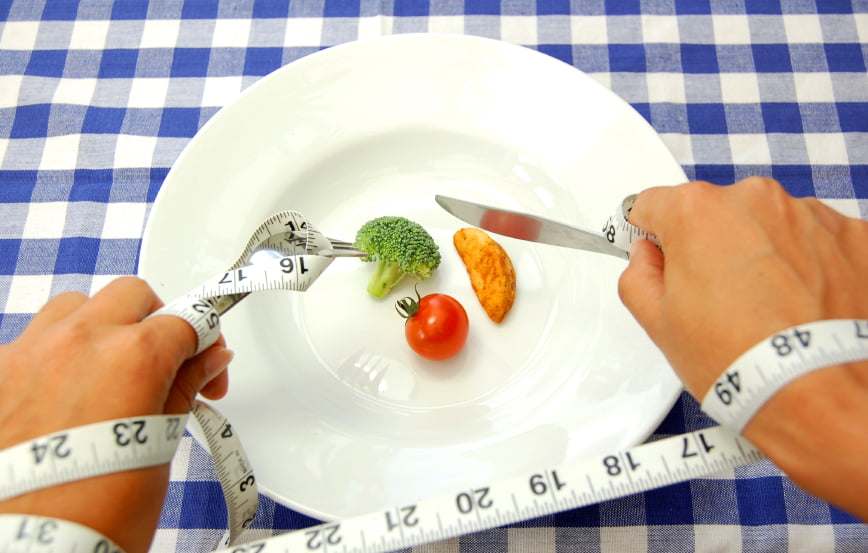Today’s generation is so hooked up on the idea of looking fit and flawless that they ignore the repercussions and resort to intense exercise and diet plans to achieve their body goals, moreover due to the advent of the social media, our eating habits and choices have also changed progressively, Instagram shows us perfectly curated dishes with healthy hashtags everyday. Along with the picture perfect foods items, we also see the picture perfect people.

So for the desire to attain that ideal, faultless body, some people end up overdoing the restrictive diet (clean diet) thus depriving themselves of many essential elements and thus inviting newer unwanted health issues.
Orthorexia

Though not formally identified, there is an increase in cases of orthorexia. ‘Orthorexia’ was coined in 1998 and it means an obsession with clean or ‘healthy’ eating. People with orthorexia become so fixated with so-called ‘healthy eating’ that they in turn cause harm to their bodies.
As the condition is yet to be formally identified, exact data regarding the people suffering from it cannot be determined. It is also difficult to deduce whether it’s only an eating disorder like
SIGNS & SYMPTOMS OF ORTHOREXIA

- A continuous urge to check the ingredient lists and nutritional labels
- An increase regarding concern about the nutritional status of the ingredients
- Barring major food groups completely (sugar, carbohydrates, dairy, meat, etc)
- Restricting themselves to only eating ‘healthy’
- Unusual curiosity in the health of others too.
- Feeling anxious or stressed when served ‘the non-healthy food’
- Difficulty in consuming non- healthy food items and purging if consumed.
- Obsessively following healthy eating channels on social media.
- Few also so signs of Body dysmorphic disorder (BDD)

Effects on Health :
CARDIOVASCULAR SYSTEM

- Consuming fewer calories than required means that the body breaks down its own tissue to generate energy. Muscles are the one to be broken down first, and the most pivotal muscle is the heart. Pulse and blood pressure decrease as the heart has less energy to function thus, increasing the risk for heart failure.
- Cleansing the body by vomiting or laxatives depletes electrolytes levels. Abnormal electrolyte levels can lead to irregular heart rate followed by heart failure and death.
GASTROINTESTINAL SYSTEM
Gastroparesis
Slowing down digestion is known as gastroparesis. Food restriction or purging interferes with normal digestion and absorption which can lead to:
- Abdominal pain and bloating
- Nausea, vomiting
- Blood sugar levels fluctuations
- Clogged intestines because of remnants of undigested food
- Infections
- Feeling full after eating small amounts of food
Constipation, which can be due to:
-
- Inadequate nutritional (food) intake.
- Long-term inadequate nutrition (food) intake weakens the muscles of the intestines thus they are not able to push digested food out of the body.
- Laxative abuse can hamper nerve endings and leave one dependent on them for bowel movements
- Frequent vomiting can cause sore throats, hoarse voice and erode the lining of the esophagus.

Limiting to a particular diet, while restricting the intake of carbohydrates and fats can lead to malnourishment and disturb the absorption of other nutrients. For instance, vitamin D is a
NEUROLOGICAL

- Brain consumes up to one-fifth of the body’s total calories, hence restricted diet may lead to obsessing about food and difficulties concentrating and focussing on work.
- Extreme hunger or fullness at while sleeping can cause sleep apnoea.
- The neurons require an insulating, protective layer of fats to function. Inadequate fat intake may thus cause numbness and tingling in the extremities.
- Neurons use electrolytes (potassium, sodium, chloride, and calcium) to send electrical and chemical signals. Hence electrolyte imbalances can cause seizures and muscle cramps.
ENDOCRINE
- Many hormones require fats and healthy cholesterol to function, few of the important ones are:
- Estrogen, testosterone and thyroid hormones
- Lowered sex hormones can cause dysmenorrhea, amenorrhea, osteopenia and osteoporosis in women .
- Without enough energy to fuel, hypothermia may develop.
OTHER CONSEQUENCES:
Low caloric and fat consumption can cause dry skin, brittle nails and hair.
Malnutrition can also decrease white blood cells thus making one susceptible to infections
TREATMENT
The treatment involves psychotherapy and counselling sessions to talk them out of obsessive healthy eating by explaining to them in detail the consequences of such extreme resorts, and thus providing them with an alternate healthy diet plan which help them to overcome their deficiencies and live an actual healthy life like they have always wanted.









